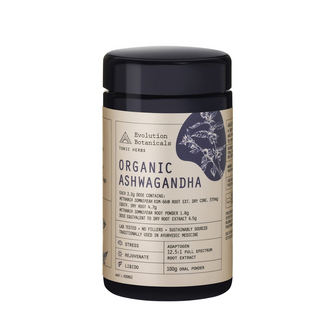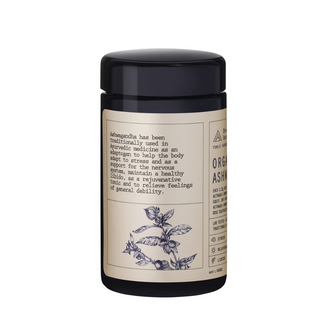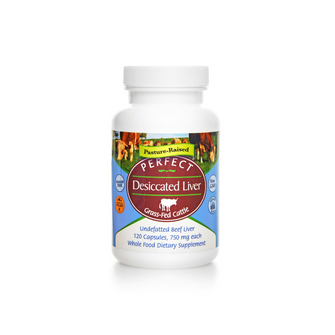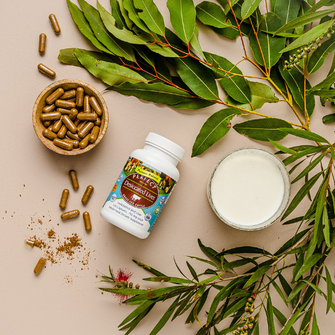Categories
I wasn't planning to write a blog about boosting testosterone but this topic has been coming up a lot lately for me. My brother was recently talking about it and also one of our friends.
Helping people is at the heart of my business so I made it my mission to write about it here and share it with whomever may benefit.
I hope it helps. 🙌🏻
By the way, nothing I write is to be taken as health advice, it is simply information for you to ponder and further research.
The body is miraculous when given the right conditions to heal.
In this article, we will discuss what testosterone is, its role (in both male and female bodies), what things affect it and what paths we can take to naturally boost it when levels are low.
What is Testosterone?
Testosterone is an important sex hormone found in both males and females and it plays a vital role, so if it is low, things might not work as they should.
Let's explore low testosterone in both sexes.
Low Testosterone in Men
This issue is common amongst men and especially as they age. In today's blog, we'd like to discuss the most common signs & symptoms.
- Low Libido (low desire for sexual intimacy)
- Trouble getting/maintaining an erection
- Hot flashes (yes, men get these too)
- Hair Loss (balding)
- Fatigue and Low Energy
- Low Muscle Mass (you need healthy testosterone levels to maintain/gain muscle)
- Increased Adipose Tissue (more body fat)
- Decreased Bone Mass
- Changes in Mood & Mental Clarity
- Memory Issues
- Changes in Penis/Testicle Size (smaller)
Low Testosterone in Women
Women have naturally lower levels of testosterone than men but we still need this sex hormone and when we are low, we may not be able to do the following efficiently:
- Produce new blood cells
- Maintain bone and muscle mass
- Maintain a healthy weight
- Have proper brain function
- Have good energy levels
- Have a Healthy Libido/sex drive
- Influence follicle-stimulating hormones (for reproduction)
What a Woman May Notice if Testosterone is Low:
- Tired often
- Trouble concentrating
- Low desire for sex
- Mood swings
- Thinning lips
- Dry/thinning hair
- Joint pain
- Feeling depressed
- Trouble gaining muscle
- Trouble losing weight or weight gain
What Affects Testosterone?
There are many things that can affect a man's testosterone levels, so if you are concerned or think you may be affected, please see your doctor.
Mostly it is just growing older and stress but it can also be other factors (some of which are quite serious):
- Autoimmune Issues
- AIDS
- Alcoholism
- Cancer Treatments (Chemo/radiation)
- Cirrhosis of the Liver
- Infection
- Kidney Disease
- Metabolic Syndrome (quite common)
- Medications (certain ones)
- Obesity
- Pituitary Gland Issues
- Testicle Injury
For Women, testosterone is produced in the ovaries, adrenal glands and peripheral tissues. As we age, low testosterone can occur. Menopause is a common time to experience a drop on both oestrogen and progesterone but also testosterone.
If you're a woman and you are concerned you should speak to your doctor also.
Other Factors that Can Cause Low Testosterone in Women:
- Adrenal Gland Issues
- The Removal of One's Ovaries
- Hypopituitarism (under active pituitary gland)
- Oral Oestrogen Therapy
- Early Menopause for Younger Women
Natural Paths to Take to Boost Testosterone
We aren't against hormone replacement therapy, or any other medical route an individual wants to take, it's a personal choice. We do want to tell you though of the ways that you can naturally boost testosterone so you can make fully informed decision.
Nothing we say is to be taken as health advice.
- Increase Physical Activity and Lift Weights: This alone, can help a man (and probably a woman too), to boost testosterone. Lifting weights has shown to have a profound effect on testosterone levels actually. This helps to build muscle and muscle is now being discovered to be a vital part of our endocrine (hormonal) system.
- Eat a Healthy Diet: "Yeah, yeah, yeah, we hear this all the time", I know what you are thinking but people often underestimate the power of eating a healthy diet. A whole food, unprocessed diet that includes animal protein, some animal fats (like ghee and tallow), fruits and vegetables etc.
- Stress Less: I can already see you rolling your eyes (maybe). This is something else that gets drilled into us but it is for good reason. Stress is at the centre of much illness (mostly preventable too). Find a way to reduce your stress by making time for yourself to enjoy the things you love. Nature is a great de-stressor and early morning sunlight (which we discuss in point 4).
- Get Vitamin D: The sunshine vitamin is another powerful testosterone booster. That is because, when you get the early (dawn) light into your eyes and on your skin, it helps your mitochondrial health (at the cellular level) and it helps to balance your endocrine system so naturally, this can help with your low levels of testosterone. Try it for a month and see if you notice any changes. Try supplementing with D3 or Cod liver oil if you really can't get into the sun.
- Supplement: There are lots of supplements that could help you but we will just mention a few here: Ashwagandha, Beef Liver, Zinc and Shilajit. These are all known to help support healthy testosterone levels. We will link the products in 'related products' below (or to the side of the screen if you're on a desktop).
- Get Adequate Restful Sleep: If you're suffering from lack of sleep, this is an issue. Sleep is vital for hormone balance, mood, energy levels, brain function (your brain actually detoxes while you sleep) and more! See our blog here for tips.
- Avoid Endocrine Disruptors: Say what? An endocrine disruptor is a substance that disrupts your hormones basically. You have probably heard of BPAS yes? (unless you've been living under a rock somewhere). BPAS are just one chemical found in plastics, there are many others that haven't been tested. No plastics are good so try to avoid them where you can. Go for glass or stainless steel food containers. Pease do not drink out of plastic water bottles or eat from plastic takeaway containers. Store receipts also contain BPAs so best to avoid these also if you can or get a receipt emailed.
- Limit or Cut out Alcohol: Alcohol can be fun, but we need to be aware of its negative impact on the body (including testosterone levels). Limit your intake or cut it out completely and discover how good you can truly feel.
We hope you found this information helpful today and share it with others if you did.
References:
https://pubmed.ncbi.nlm.nih.gov/18923185/
https://www.healthline.com/nutrition/8-ways-to-boost-testosterone
https://www.healthline.com/health/low-testosterone-in-women
https://www.healthline.com/health/low-testosterone/warning-signs
https://www.healthline.com/health/what-is-testosterone
https://drbrighten.com/women-need-testosterone/
Disclaimer: the information in this article is intended purely as information and not health advice. It is not intended to treat, diagnose, prevent or cure and one should always seek expert advice from their trusted health practitioner.








